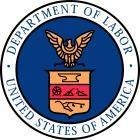Educating parents and communities can help protect children from the worst forms of child labor – work that threatens their health, thwarts their education and limits their futures. This tale of three villages in Benin, a country in West Africa, shows how effective raising awareness can be.
All three villages are poor, and in all three, people earn their living working in quarries. And in all three, the Department of Labor is funding a project called “ECOWAS II.”
Ask parents in these villages what they think of their children – some as young as three – breaking rocks with pick axes, breathing heavy dust and straining to carry heavy loads of rubble, and you will get three different answers.
In the first village, where awareness raising under the project began just this month, parents say, “They are not in danger. Sure, they should go to school, but we can’t afford that.”
In the second village, where awareness raising efforts have had more time to take root, you hear a different story: “I am so happy my children are in school and not in the quarries where it is dangerous.” Yet, parents still ask, “What am I supposed to do when the project leaves?”
In Lokossa, a village where the project has been in place for nine months and children regularly attend school, parents are adamant that they want their children in school where they are safe. Even if the project ends, they say, their children will not work in quarries. They are even organizing “neighborhood watch” groups to guard against it.
Like many projects supported by theLabor Department’s Bureau of International Labor Affairs, ECOWAS II uses a variety of strategies to protect vulnerable children. It improves access to school and helps parents increase their incomes so that they no longer need to rely on their children’s earnings. But in Benin, as elsewhere, raising awareness is key. The more parents are informed, the better choices they make for their children.

A project partner discusses the hazards of quarrying with parents and their children in a stone quarry in Zakpota, Benin.
Approximately 1 million children work in mines or quarries worldwide. In Benin, as in many other countries, such activity is illegal and underreported. But the problem and its dangers, though often hidden, are very real. In the quarries, children inhale dust from the rocks, which causes a chronic and potentially fatal respiratory illness. Some fall into pits or get injured lifting rocks; others are crushed under falling stones.
Parents may put their children in harm’s way for lack of better alternatives. In Benin, where nearly half the population lives on less than $1.25 a day, stone quarrying is a family affair, employing the father to dislodge the rocks and the mother to sift out the dirt. Leaving small children at home is not an option, and schools are typically too expensive and may be too far away. Many families are so poor that they need the extra hand.
Projects like ECOWAS II – which supports children in Benin, Nigeria, Ghana, and Cote d’Ivoire – aim to break this cycle of poverty. They educate families, businesses and communities about the hidden dangers of quarrying and lasting value of sending children to school. And they bring that education within reach for poor families, by paying for books, uniforms and other expenses. The project has also produced a documentary shown on local television and it will soon begin helping parents raise their incomes without their children’s help.

The Labor Department supports these children in Zakpota, who are able to attend school and have learned the importance of education.
As a result, children in Benin are beginning to move from lifting rocks to toting schoolbooks, from a life steeped in hazard to one empowered through awareness.


 i
i



